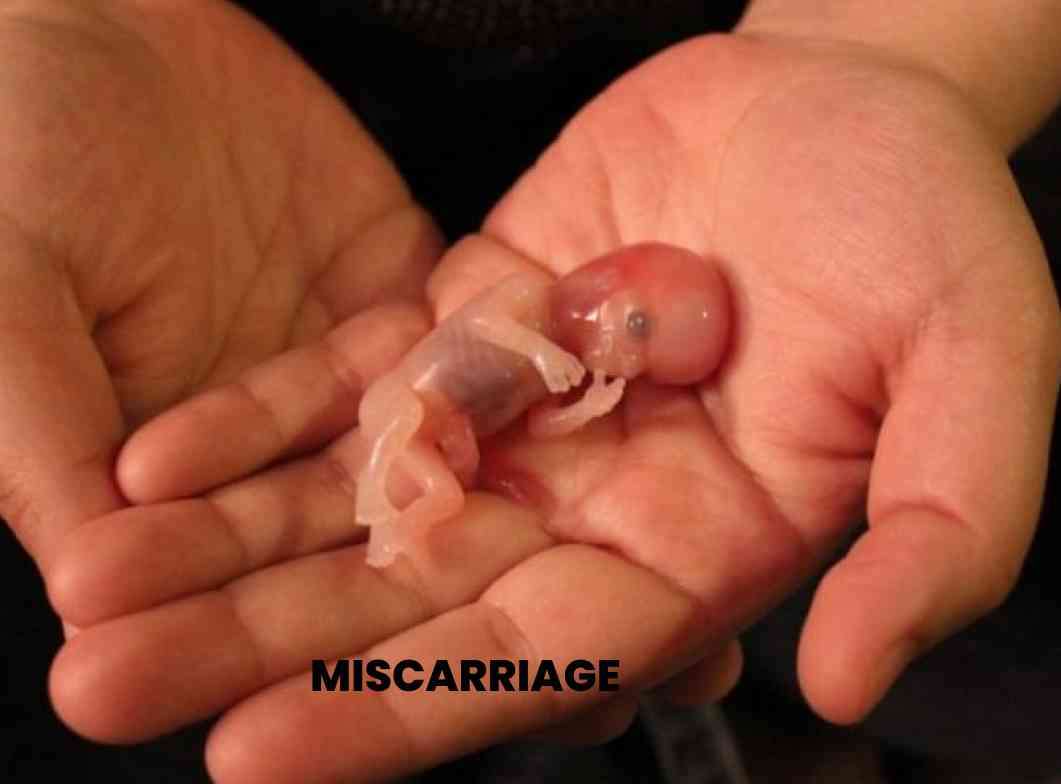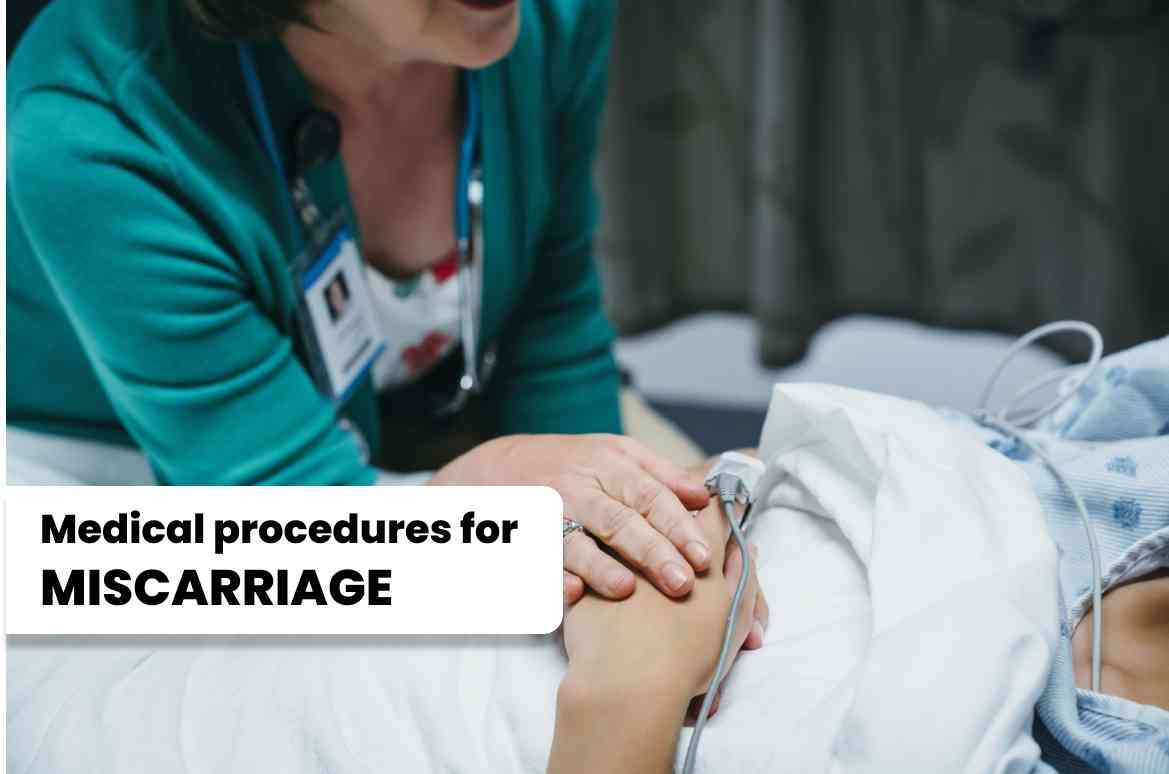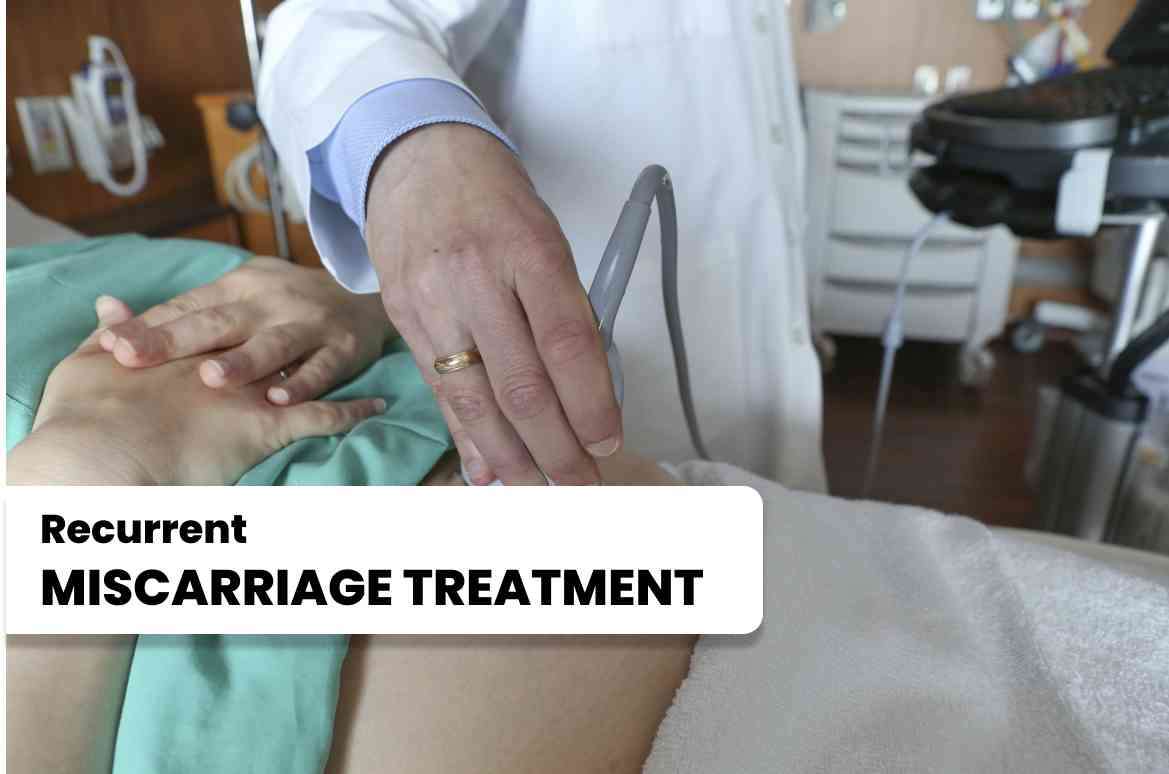Miscarriage, a spontaneous loss of pregnancy before the 20th week, is a devastating experience for many expecting parents. It is estimated that 10-20% of known pregnancies end in miscarriage, and the emotional and physical toll it takes on individuals and couples is significant. Fortunately, medical advancements have led to several treatment options aimed at both managing the physical aspects and supporting the emotional well-being of those affected by miscarriage.
The symptoms of a miscarriage can vary, but common signs include vaginal bleeding, cramping, passing of tissue or clots from the vagina, and a decrease in pregnancy symptoms. It's important to note that not all vaginal bleeding during pregnancy indicates a miscarriage, as spotting can occur for various reasons. However, if you experience any concerning symptoms, it is advisable to seek medical attention for an accurate diagnosis and appropriate care.
a) Medication to Assist Natural Miscarriage:
In cases where a natural miscarriage is expected, healthcare providers may prescribe medications, such as misoprostol, to help the uterus expel the remaining pregnancy tissue. These medications induce contractions and can be administered at home, under medical supervision.
b) miscarriage Pain Relief at Home:
Over-the-counter pain relievers, can help manage the discomfort and cramping associated with miscarriage. However, it is important to consult a healthcare professional before taking any medications to ensure safety and appropriate dosage.

a) Medication to Assist Natural Miscarriage:
In cases where a natural miscarriage is expected, healthcare providers may prescribe medications, such as misoprostol, to help the uterus expel the remaining pregnancy tissue. These medications induce contractions and can be administered at home, under medical supervision.
b) miscarriage Pain Relief at Home:
Over-the-counter pain relievers, can help manage the discomfort and cramping associated with miscarriage. However, it is important to consult a healthcare professional before taking any medications to ensure safety and appropriate dosage.
a) miscarriage Dilation and Curettage (D&C) Surgery: D&C is a common surgical procedure used to remove the remaining pregnancy tissue from the uterus. It involves dilating the cervix and scraping the uterine lining to ensure complete evacuation. D&C may be recommended in cases of incomplete abortion or when the body does not naturally expel all the tissue.
In some instances, a surgical approach may be preferred to ensure the complete removal of pregnancy tissue. Procedures such as suction curettage or manual vacuum aspiration (MVA) may be performed under local or general anesthesia, depending on the individual's condition and medical preferences.

a) miscarriage Dilation and Curettage (D&C) Surgery:
D&C is a common surgical procedure used to remove the remaining pregnancy tissue from the uterus. It involves dilating the cervix and scraping the uterine lining to ensure complete evacuation. D&C may be recommended in cases of incomplete abortion or when the body does not naturally expel all the tissue.
In some instances, a surgical approach may be preferred to ensure the complete removal of pregnancy tissue. Procedures such as suction curettage or manual vacuum aspiration (MVA) may be performed under local or general anesthesia, depending on the individual's condition and medical preferences.
a) Medical Evaluation and Intervention:
Individuals who experience recurrent miscarriages may undergo comprehensive medical evaluations to identify potential underlying causes. These may include genetic testing, hormone level assessments, uterine structure evaluations, and autoimmune disorder screenings. Based on the findings, targeted treatments, such as hormonal interventions or surgical corrections, may be recommended.
Emotional support and counseling play a crucial role in helping individuals and couples cope with the emotional aftermath of recurrent miscarriages. Support groups, therapy sessions, and guidance from healthcare professionals can provide a safe space to express emotions, process grief, and explore coping mechanisms.

a) Medical Evaluation and Intervention:
Individuals who experience recurrent miscarriages may undergo comprehensive medical evaluations to identify potential underlying causes. These may include genetic testing, hormone level assessments, uterine structure evaluations, and autoimmune disorder screenings. Based on the findings, targeted treatments, such as hormonal interventions or surgical corrections, may be recommended.
Emotional support and counseling play a crucial role in helping individuals and couples cope with the emotional aftermath of recurrent miscarriages. Support groups, therapy sessions, and guidance from healthcare professionals can provide a safe space to express emotions, process grief, and explore coping mechanisms.
a) Incomplete Abortion:
In cases of incomplete abortion, where the uterus fails to expel all pregnancy tissue, medical or surgical intervention may be required. Depending on the severity and individual circumstances, medication may be prescribed to aid in the completion of the abortion process. If the remaining tissue is significant, a surgical procedure like D&C or MVA may be necessary.
b) Missed Abortion:
A missed abortion refers to a situation where the fetus is no longer viable but remains in the uterus. Treatment options for missed abortion may include medication to induce the completion of the miscarriage or surgical procedures to remove the remaining tissue.

a) Incomplete Abortion:
In cases of incomplete abortion, where the uterus fails to expel all pregnancy tissue, medical or surgical intervention may be required. Depending on the severity and individual circumstances, medication may be prescribed to aid in the completion of the abortion process. If the remaining tissue is significant, a surgical procedure like D&C or MVA may be necessary.
b) Missed Abortion:
A missed abortion refers to a situation where the fetus is no longer viable but remains in the uterus. Treatment options for missed abortion may include medication to induce the completion of the miscarriage or surgical procedures to remove the remaining tissue.
Please Wait..